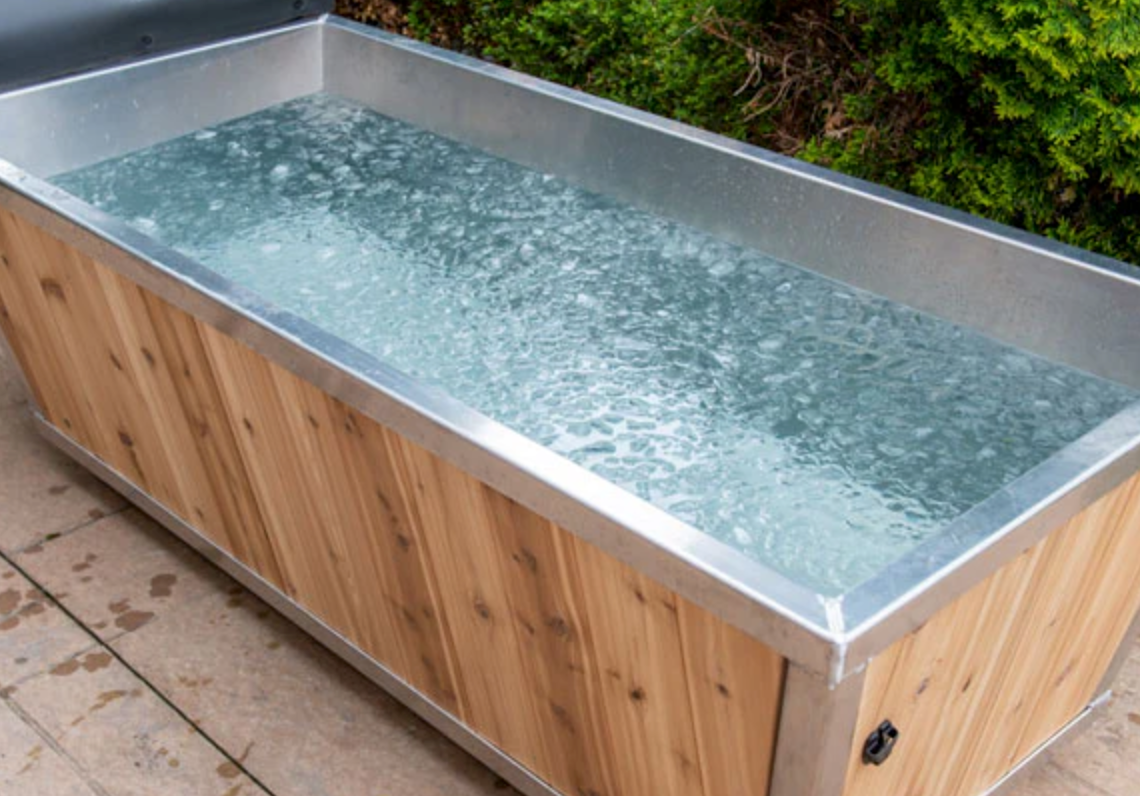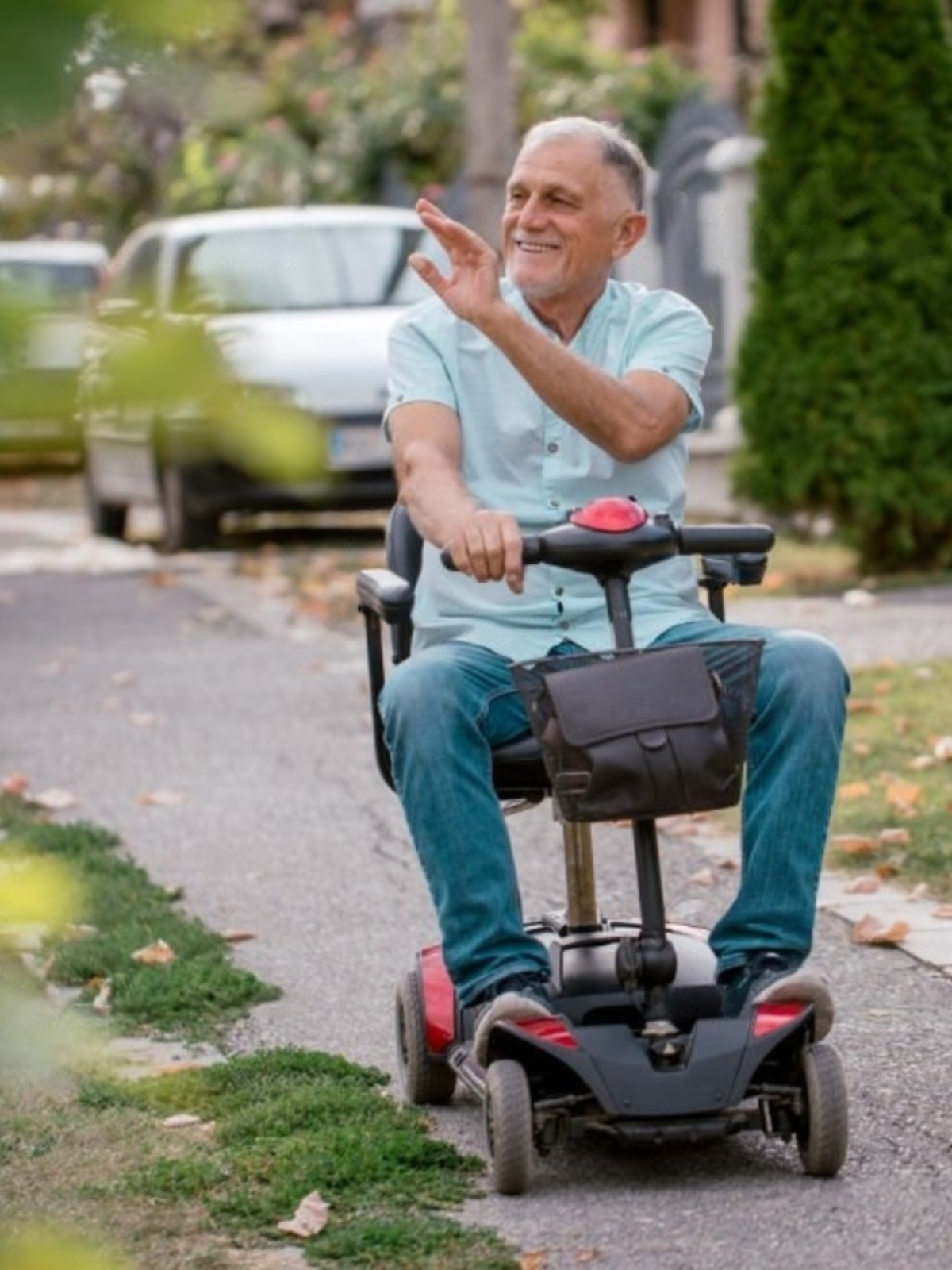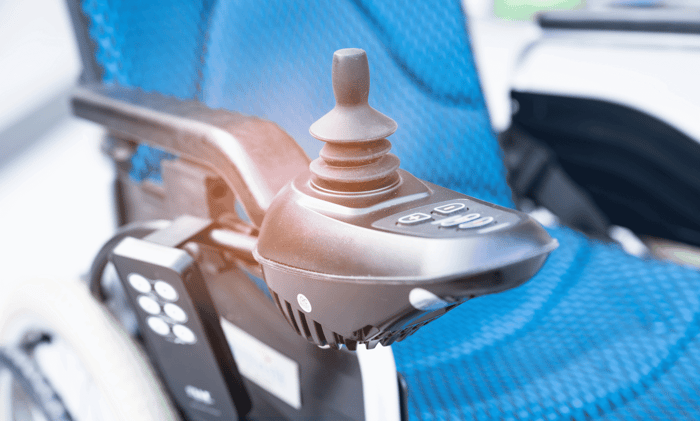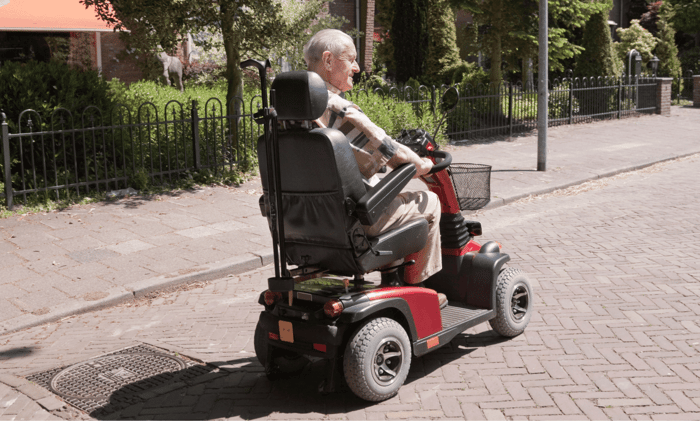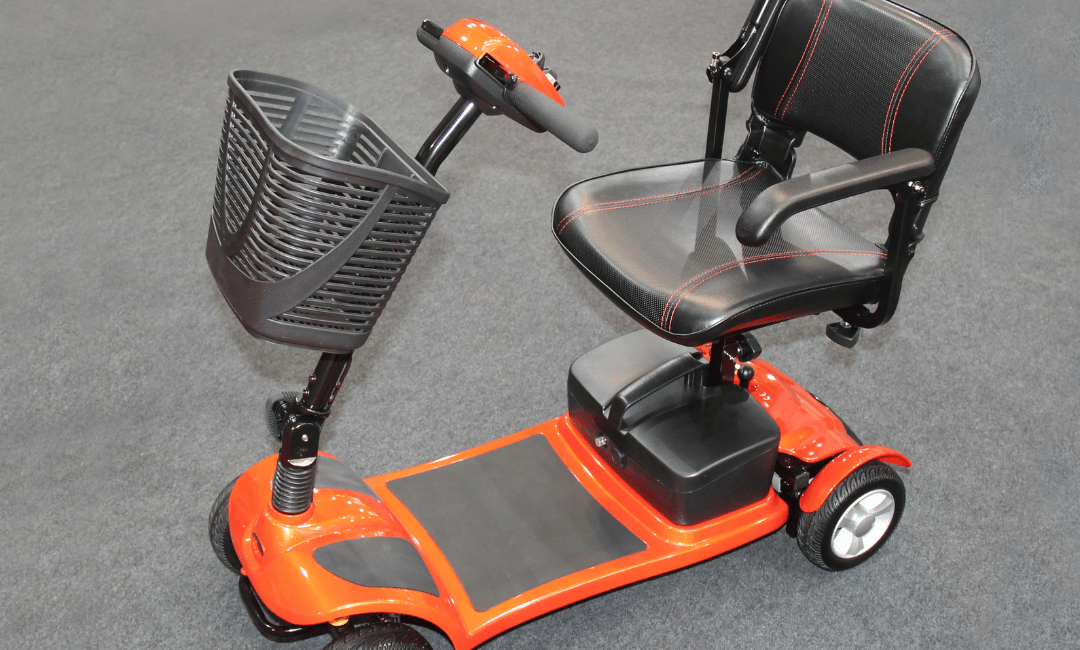
To kick things off, let's dive into the basics of what a mobility scooter actually is. It's essentially an electric vehicle designed specifically for those who have difficulty moving around - a gift of mobility for those who need it the most. It's a well-engineered marvel that empowers individuals, opening up new avenues of independence and freedom. Just think about it: a trip to the grocery store, a stroll in the park, or even visiting friends - all made possible with a mobility scooter.
According to a report, the global mobility scooter market size was valued at $1.72 billion in 2020 and is expected to grow at a compound annual growth rate (CAGR) of 7.0% from 2021 to 2028. That's some serious growth, indicating the demand and essential role these scooters play in people's lives.
Historical Development Of Mobility Scooters
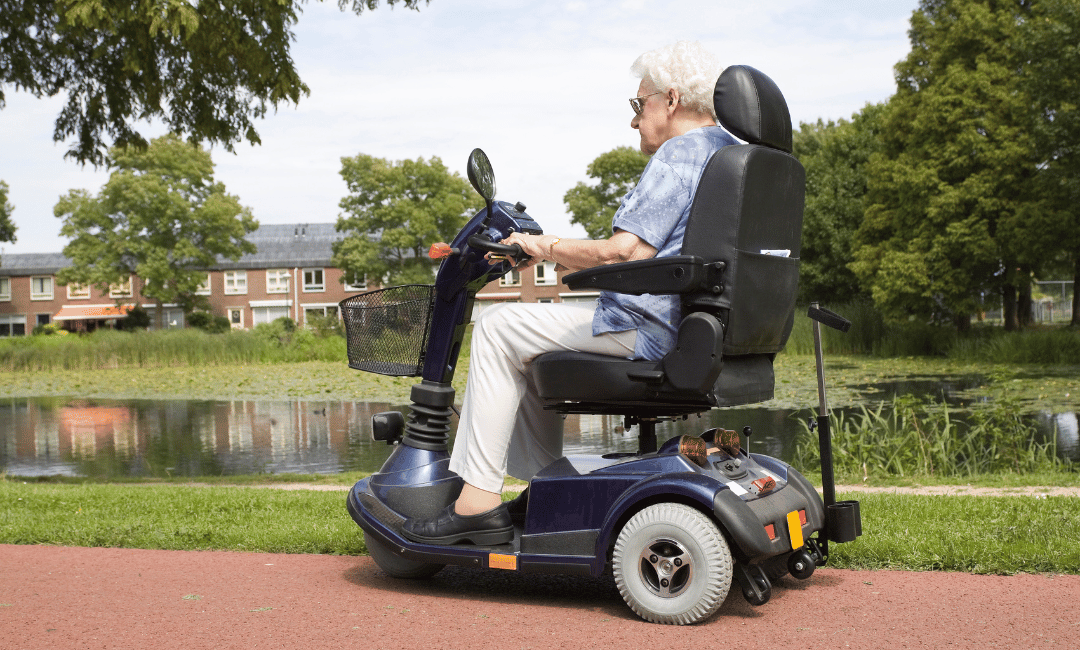
Travel back in time with me for a moment - the history of mobility scooters is fascinating. The first electric mobility scooter was developed in the early 1960s by a plumber named Allan R. Thieme in Bridgeport, Michigan. Thieme's innovation was prompted by a family member who had multiple sclerosis.
He aimed to provide a device that would enhance her independence, marking the birth of the mobility scooter. Over the years, these devices have come a long way, adapting to changing technologies and user needs.
Importance And Role Of Mobility Scooters
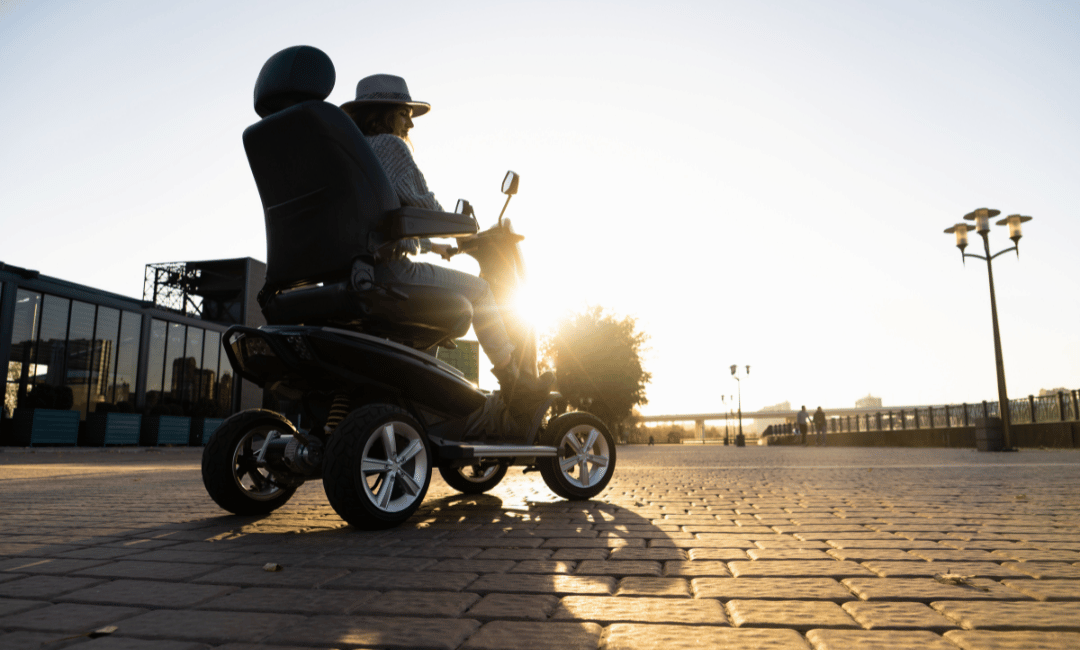
The importance of mobility scooters cannot be overstated. For individuals struggling with mobility, these machines are more than just transportation devices - they're lifelines. A study published by the National Center for Biotechnology Information (NCBI) emphasizes that mobility scooters improve the quality of life by enhancing independence and reducing isolation.
They enable users to carry out day-to-day activities that many of us take for granted, truly playing a significant role in their lives.
Types of Mobility Scooters
3-Wheel Mobility Scooters
Known for their maneuverability, 3-wheel mobility scooters are great for indoor use. Their tight turning radius makes them perfect for navigating narrow corridors or crowded spaces. However, they can lack stability compared to their 4-wheel counterparts, especially on uneven terrain.
4-Wheel Mobility Scooters
These scooters offer enhanced stability, making them ideal for outdoor use. They can handle uneven surfaces and are generally more robust. Most mobility scooters have a wider turning radius than 3-wheel scooters, so they might not be the best choice for tight indoor spaces.
Heavy-Duty Mobility Scooters
Designed for durability and power, heavy-duty mobility scooters can carry heavier weights, traverse rugged terrains, and even climb steep inclines. They typically come with larger batteries, providing a greater travel range. But keep in mind these robust machines are not as portable or compact as other types of handicap scooters or folding scooters.
Working Of Mobility Scooters
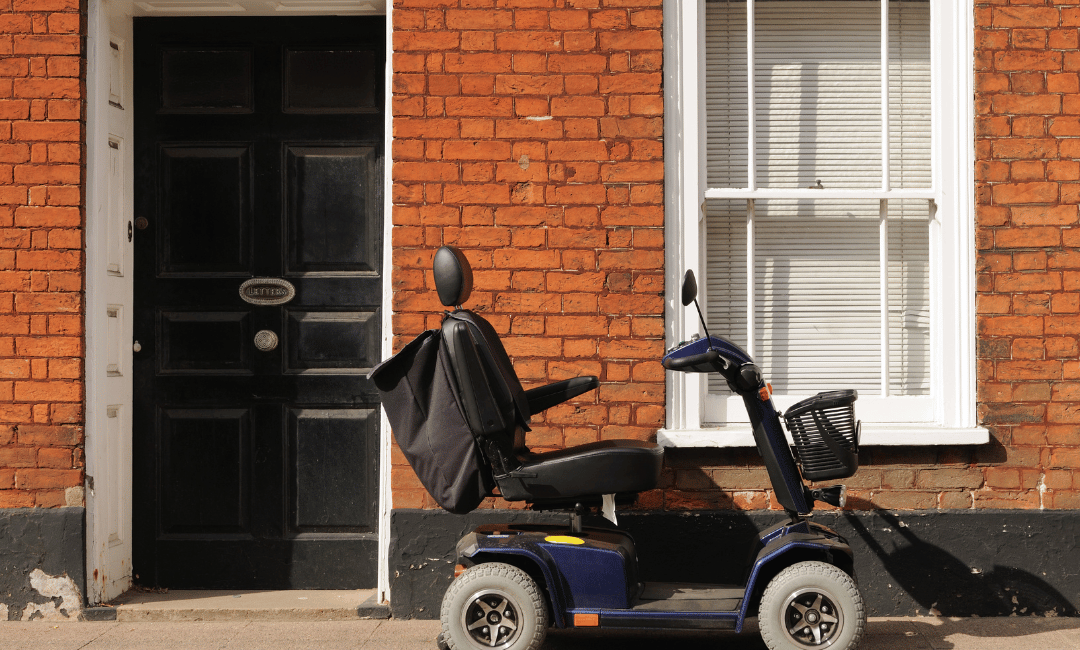
Basic Design And Structure Of Mobility Scooters
Electric mobility scooters are composed of several essential parts. The heart of the scooter is the electric motor, powered by a rechargeable battery. This motor propels the scooter, with the power regulated by a controller that responds to the user's commands via a tiller and control panel.
The tiller, typically housing the scooter's controls and steering mechanism, can be adjusted to the user's comfort. You'll also find wheels that come in various sizes and designs based on the type of scooter, a comfortable seat that swivels for easy access, and a base that houses the scooter's key components.
Electric Motor And Battery System
At the core of every mobility scooter is its battery system. The scooter relies on a rechargeable battery, typically either sealed lead acid (SLA) or lithium-ion. Charging your scooter's battery regularly is key to maintaining its longevity and performance.
Most batteries last between 12 to 24 months before needing replacement, but this can vary based on use and maintenance. Always refer to your manufacturer's guidelines on charging and maintenance to keep your battery in top shape.
Control And Steering System
When it comes to driving a mobility scooter, the central component is the tiller. This comprises the steering and control mechanisms of the scooter. The user can control the scooter's speed and direction by manipulating the tiller's throttle control and steering handle. Some heavy-duty scooters also come with a speed dial that lets you set a maximum speed limit for safety.
Selecting The Right Mobility Scooter
Understanding Individual Needs And Requirements
When choosing a mobility scooter, you need to consider where you'll primarily use it. For indoor use, you might prefer a three-wheel scooter for its tight turning radius, perfect for navigating narrow hallways or crowded areas. Outdoor users may benefit more from a four-wheel or heavy-duty scooter, known for their stability and ability to handle uneven terrain.
Your travel range and speed needs are another essential consideration. If you're planning long outings or trips, look for a scooter with long battery life and higher speed. Remember, speed and battery life often go hand in hand - the faster you go, the quicker your battery will drain.
Considerations For Comfort And Size
Comfort is key when choosing your scooter. The seat should be the right size for your body, offering good back support and cushioning. Some models even offer adjustable seats and armrests for extra comfort.
Make sure there's ample legroom for a comfortable ride, especially if you're tall or have long legs. A storage basket is a handy feature for carrying personal items during your ride. Consider the size of the basket based on your typical needs.
Understanding Weight Capacity And Performance
Every mobility scooter has a weight capacity - the maximum weight it can safely carry. This includes the user's weight and any additional items you plan to carry. It's crucial to choose a scooter with a weight capacity that meets or exceeds your weight for safety and optimal performance.
The battery life and range of the scooter are directly related to its performance. Generally, a fully charged battery should last for around 15 to 20 miles, but this can vary based on factors such as the scooter's speed, the terrain, and the weight it's carrying.
Checking For Safety Features
Safety is paramount when it comes to mobility scooters. Anti-tip mechanisms are a must-have safety feature that prevents the scooter from tipping over during sharp turns or when climbing inclines. For those planning to use their motorized scooter after dark or in low-light conditions, proper lighting is essential. Look for scooters equipped with headlights, taillights, and signal indicators for safe operation.
Seat belts offer additional safety, particularly for users with balance issues. Similarly, a good braking system is crucial. Most pride mobility scooters come with electromagnetic brakes that automatically engage when the scooter isn't in motion.
Accessibility And Portability Considerations
If you frequently travel or have limited storage space, consider a scooter that can be easily folded or disassembled. These models are designed for convenient transport and storage. For individuals who want to take their recreational scooters on the road, vehicle lifts and ramps are great accessories. These devices help you load and unload your scooter into your vehicle with ease.
Understanding Legal Regulations For Mobility Scooters
Rules And Regulations For Use
In many areas, mobility scooters are allowed on public roads and sidewalks, but rules can vary. Always check local laws and regulations to ensure you're using your scooter legally and safely. Remember to follow the rules of the road and be mindful of pedestrians and other traffic.
Most public transport services and buildings are accessible to mobility scooters, but there can be restrictions based on size and weight. Always check in advance if you're planning to take your scooter on public transport or into a public building.
Required Documentation And Licensing
Some areas require mobility scooters to be registered and insured, particularly if they're used on public roads. Check local laws to ensure you have the necessary documentation.
Typically, you don't need a driver's license to operate a mobility scooter. However, some places may require a special permit, particularly for high-speed scooters. Always check local regulations to ensure you're compliant.
Conclusion: Summarizing The Importance Of Mobility Scooters
In a nutshell, mobility scooters are more than just a mode of transport – they are a ticket to freedom, independence, and a better quality of life. They play a vital role in promoting social inclusion, mental health, and physical well-being.
Moreover, as technology advances, the future of mobility scooters looks promising, with the potential for even more impressive features and capabilities. So here's to celebrating mobility, life, and the scooters that make it all possible.
Nurture Mobility: Your Trusted Partner In Mobility Scooter Solutions
Here at Nurture Mobility, we're committed to empowering individuals through high-quality mobility scooters. We understand the importance of independence and mobility in enhancing one's quality of life. That's why we offer a wide range of mobility scooters to cater to different needs, lifestyles, and preferences.
If you've been inspired to explore the world of mobility scooters, we invite you to buy mobility scooters from our extensive selection. We're here to guide you every step of the way, from understanding your unique needs to selecting the perfect new mobility scooter for you.
Beyond offering a diverse range of mobility scooters, including specialized medical scooters, we also provide maintenance services, resources, and customer support to ensure that your scooter keeps you moving with confidence and peace of mind. Plus, we offer free shipping on all our scooters, making it even more convenient for you to embrace mobility.
To learn more about our products and services or to get started on your mobility scooter journey, click here or call our dedicated team at (818) 485-HELP. We're excited to be part of your journey toward greater mobility and freedom!


